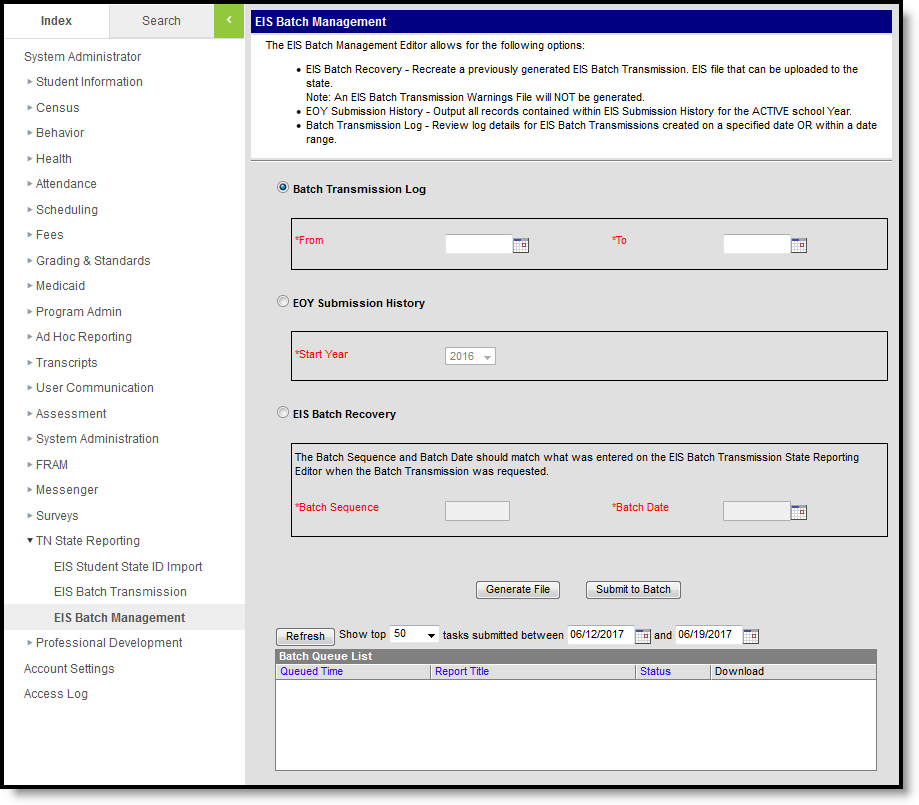PATH: TN State Reporting > EIS Batch Management
The EIS Batch Management editor allows users to complete the following tasks:
- View a log of generated batch transmissions.
- Create an archive file of the history of submissions at the end of the year.
- Recover a requested batch
EIS Batch Management Editor
Batch Transmission Log
The Transmission Log allows users to view information about EIS Batch Transmission Files generated on the entered date or date range. Log files are determined by the creation date of the transmission file, not the Batch Date entered when the file was created.
Log records include the following data:
- Calendar date and time the batch was created.
- Sequence Number entered for the Batch.
- Batch Transmission File name
- PersonID of the user who created the Batch file.
- Batch Date and Extract Version entered on the Transmission editor.
- Start Year of the active year when the Transmission File was generated.
- Effective Date entered on the Batch Transmission editor.
- Summer School as selected on the Batch Transmission editor.
The file is generated in .CSV format. The generation date and time of the log file and number of records returned reports above the results.
EOY Submission History
The Submission History option generates a text file containing all records in the EIS Submission History for the Start Year selected in the editor. The Start Year is populated by default based on records available in the Transmission Log File.
The Start Year is defined on the School Years tab. Records are included in the history file when the School Year of the EIS record matches the Start Year.
File is generated in .TXT format titled as "<Start Year> EOY Submission History."
EIS Batch Recovery
The Batch Recovery allows districts to recreate a previously generated EIS Batch to upload to the state. To recover a file, enter the Sequence Number of the original file and the Batch Date entered in the Batch Transmission editor when the file was requested.
The Batch Date entered is reported in the header record of the recovered file. The file is output with an extension of .EIS. The warning file is not generated with the recovery file.

